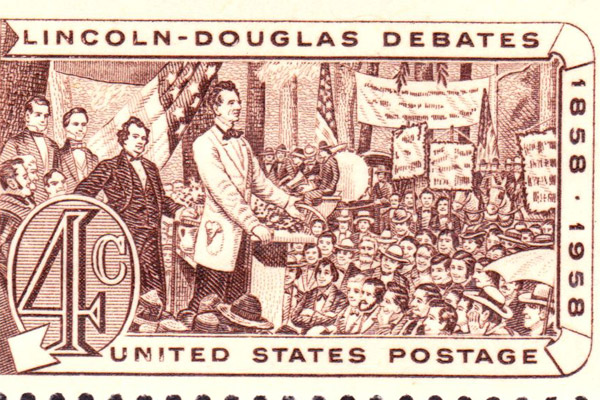
I started Absalom, Absalom! yesterday, my third Faulkner this year, in part on the recommendation of the great young essayist John Jeremiah Sullivan in the New York Times Magazine:
He has a Canadian roommate named Shreve — not an American Yankee, to whom the South might seem offensive (or worse, romantic), but a true foreigner, for whom it is appropriately bizarre. All of America is a South to Shreve. He is like us: he needs to have things explained. “What is it?” he asks Quentin about the South, “something you live and breathe in like air?” In a series of halting exchanges, Quentin tries to answer, about the South and what it does to people. “I am older at 20 than a lot of people who have died,” he deadpans.
Reading Faulkner is odd, even alienating, because despite being a Southerner I identify more with Shreve than Quentin—mostly perplexed at how the War of Northern Aggression continued to inhabit the Southern imagination, a "cult of public memory." Even more so, generations after Quentin Compson took his life. (It's probably why the Southern literary character I identified most with as a kid was, of all creations, Clarice Starling, the "well-scrubbed hustling rube with a little taste"; to an small extent, Starling is a lot like Compson without the suffocating neuroses.)
My people could care less about the Civil War and the atavistic cranks who still fly the Stars and Bars where I grew up. In his excellent recent history, America Aflame, David Goldfield captured my feelings towards the embers of its history (emphasis mine): "Lee was not a tragic figure any more than the Confederacy was a tragic attempt at sovereignty. Tragedy requires unmerited suffering. What we have in Robert E. Lee, and in the Confederacy, was a series of bad decisions, some startlingly impulsive, given Lee's embrace of reason, that led to predictable but not tragic destruction."
It's the historian's wording of what Faulkner wrote in Absalom, Absalom!: "But that our cause, our very life and future hopes and past pride, should have been thrown into the balance with men like that to buttress it—men with valor and strength but without pity or honor. Is it any wonder that Heaven saw fit to let us lose?"
So this most important fissure in American history is still foreign to me. But certain timeless things bring it to light, like a passage of the Lincoln-Douglas debates, the second one in Freeport, Illinois, that Goldfield highlights: Stephen A. Douglas's version of the "Cadillac-driving welfare queen."
I have reason to recollect that some people in this country think that Fred Douglass is a very good man. The last time I came here to make a speech, while talking from the stand to you, people of Freeport, as I am doing to-day, I saw a carriage—and a magnificent one it was—drive up and take a position on the outside of the crowd; a beautiful young lady was sitting on the box-seat, whilst Fred Douglass and her mother reclined inside, and the owner of the carriage acted as driver. I saw this in your own town.
Shreve, despite being a foreigner, wasn't that far off.
That Douglas stooped to race-baiting in 1858, during the prologue to the Civil War, shouldn't come as a surprise; it's just the echoes of the rhetoric that grounded it in history for me. Perhaps more interesting still was the geography of Lincoln's racial rhetoric. About Lincoln's infamous statement at Charleston that "I am not, nor ever have been, in favor of bringing about the social and political equality of the white and black races," Goldfield writes:
Did Lincoln really believe what he said at Charleston, or was it merely a question of tailoring the message to suit the crowd? It was not unusual for politicians conducting statewide campaigns to say different things at different venues, even to the point of appearing to contradict themselves. Few voters in downstate Illinois knew what Lincoln or Douglas had said in Chicago, and vice versa. In Chicago, Lincoln had expressed a general belief in black equality.
As Goldfield writes, Lincoln was most aggressive about the peculiar institution in the fifth debate—in the northwestern town of Galesburg, where the Southern air dissipated.
Photograph: Wikimedia Commons



